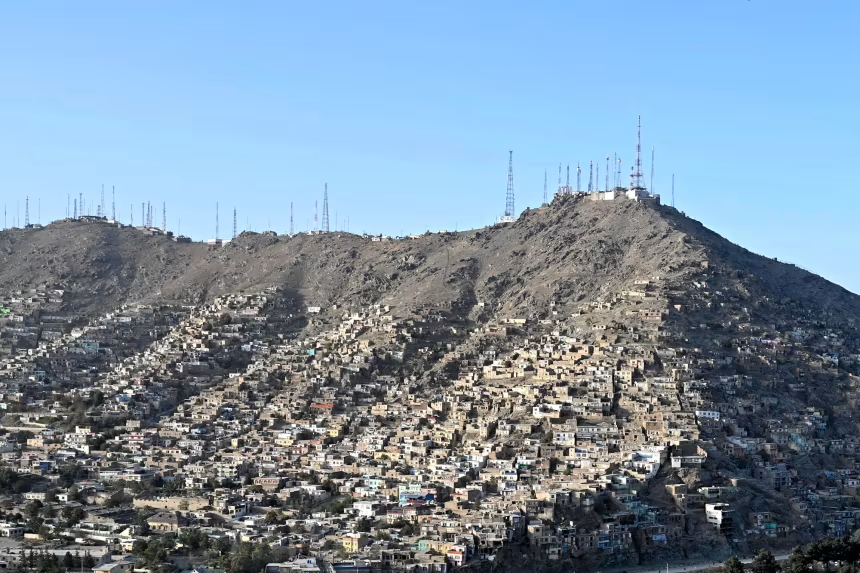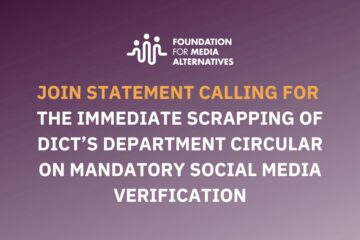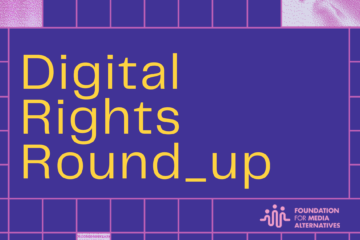The Taliban must restore internet access across Afghanistan now by Access Now and #KeepItOn Coalition
Published by Foundation for Media Alternatives (FMA) on
Access Now and the #KeepItOn coalition unequivocally denounce the ongoing nationwide internet blackout in Afghanistan and demand that the Taliban restore internet access immediately.
We, the undersigned organizations and members of the #KeepItOn coalition — a global network of over 345 human rights organizations from 105 countries working to end internet shutdowns — urgently demand that the Taliban, as the de facto authorities, uphold its obligation to protect fundamental human rights guaranteed by international human rights standards.
According to evidence documented by an internet connectivity monitoring organization, IODA, the nationwide internet blackout went into force on September 29, 2025, at around 12:30 am UTC (17:00 local time). The disruption aligned with earlier reports by TOLO News that a nationwide shutdown was imminent. Although mobile internet connections were not impacted during Monday’s blackout, data from Cloudflare Radar today shows that the entire country is currently cut off from the digital grid, with internet traffic dropping to zero at the national level.
Yesterday’s shutdown is an escalation by the de facto authorities to widen and tighten their censorship in Afghanistan when they shut down fibre optic (Wi-Fi) internet across at least 15 provinces, including Kunduz, Badakhshan, Baghlan, and Takhar, earlier this month to “prevent immorality.” This is not the first time the Taliban has imposed shutdowns to curtail human rights. Since they came into power in 2021, they have enforced four internet shutdowns to curb information flow and restrict fundamental rights.
These measures are part of a broader campaign to silence dissent, curb criticism, and control what people in Afghanistan see and say online. In 2024 and early 2025, the Taliban’s supreme leader sought a clerical ruling to ban smartphones outright; amid opposition from within the Taliban ranks and supporters, the plan stalled. The regime has also been seeking to curb social media. In 2023, the Ministry of Information and Culture announced that YouTube channel operators must obtain a license, post a financial guarantee and pay fees before they can operate. Senior officials in the finance and economy ministries reportedly warned that severing high‑speed internet would cripple government functions and the economy. Reports suggest that only government offices and diplomats may receive limited access via a new state‑controlled provider, while ordinary people in the country will need special permits to go online, further entrenching surveillance and deepening inequality.
The blackout has cut off a vital lifeline for millions, deepening the situation for women’s rights and humanitarian crises. People in Afghanistan rely on the internet to run businesses, receive salaries and remittances, communicate with loved ones, and access education and healthcare. For women and girls barred from most educational institutions, online classes are often the only means of learning. The shutdown has already locked thousands of students and teachers out of virtual classrooms.
Moreover, civil society and humanitarian actors are unable to coordinate a humanitarian response to the devastating earthquake that has hit the eastern region of Afghanistan. Journalists cannot report safely or verify information, undermining the public’s right to know. The internet blackout is further isolating women and girls whose civil rights have been curtailed and who tend to rely heavily on internet services to earn a living, learn, and stay connected. Afghan Peace Watch warns that 40 million people are being dragged into digital darkness. Any short‑term control over information will come at the expense of long‑term damage to the economy, education, gender equality, and technological development.
Afghanistan’s nationwide internet shutdown is an authoritarian tactic disguised as a “fight against immorality.” By ignoring internal warnings about economic and social fallout, the Taliban leadership has chosen to punish an entire population for the sake of censorship and control. This blackout is incompatible with Afghanistan’s international obligations and with the dignity and rights of its people.
Access Now and members of the #KeepItOn coalition call on the Taliban to immediately restore all high‑speed internet connections, stop imposing blanket shutdowns, reconnect fibre‑optic, Wi‑Fi, and mobile networks across Afghanistan, and pledge that no further arbitrary disruptions will occur.
We urgently appeal to the international community, particularly governments, including the Freedom Online Coalition, to publicly denounce the internet blackout and support calls by rights groups for the Taliban to restore unhindered internet access across the country.
The people in Afghanistan must not be consigned to a future in digital darkness. We must act now.
Signatories
- Access Now
- Activate Rights
- Africa Open Data and Internet Research Foundation (AODIRF)
- African Freedom of Expression Exchange (AFEX)
- AfricTivistes
- Asian Forum for Human Rights and Development (FORUM-ASIA)
- Bloggers Association of Kenya (BAKE)
- Bolo Bhi
- Center for Media Research – Nepal
- Center for Media Studies and Peacebuilding (CEMESP)
- Committee to Protect Journalists
- Computech Institute
- Digital Rights Foundation
- Digital Rights Kashmir
- Digital Rights Nepal (DRN)
- Digital Rights Watch
- Digitally Right
- Forumvert
- Foundation for Media Alternatives
- Human Rights Activists (in Iran) (HRANA)
- Human Rights Journalists Network Nigeria
- Human Rights Myanmar
- IFEX
- Innovation for Change (I4C) South Asia
- International Press Centre (IPC)
- Internet Governance Tanzania Working Group (IGTWG)
- JCA-NET(Japan)
- Jonction, Senegal
- LastMile4D
- Kandoo
- KICTANet
- Koneta Hub- South Sudan
- Kurdish Organizations Network coalition for the International Criminal Court (KONCICC)
- Life campaign to abolish the death sentence in Kurdistan Network
- Manushya Foundation
- Media Diversity Institute – Armenia
- Media Foundation for West Africa (MFWA)
- Media Matters for Democracy, Pakistan
- Media Rights Agenda (MRA)
- Miaan Group
- Mirror Arts CBO
- Myanmar Internet Project
- Office of Civil Freedoms
- Open Observatory of Network Interference (OONI)
- Opening central Africa coalition
- Organization of the Justice Campaign
- Paradigm Initiative (PIN)
- PEN Afghanistan
- PEN America
- PEN International
- Rudi International
- Sassoufit Collective
- Skyline International for Human Rights (SIHR)
- SMSWithoutBorders
- Southeast Asia Freedom of Expression Network (SAFEnet)
- Tech & Media Convergency (TMC)
- Tech Global Institute
- The Afghanistan Journalists Center(AFJC)
- The Red Flag ( TRF)
- Ubunteam
- Webfala Digital Skills for all Initiative
- West African Digital Rights Defenders Coalition
- Women Empower and Mentor All CBO (WEmpower)
- Women of Uganda Network (WOUGNET)
- YODET
- Zaina Foundation



0 Comments